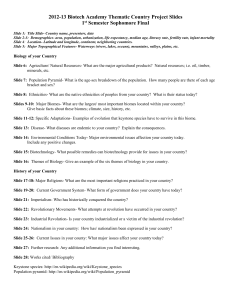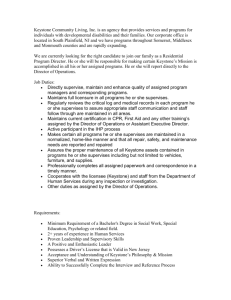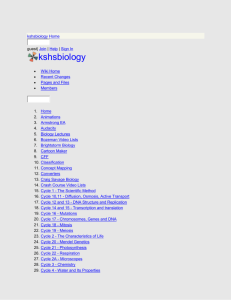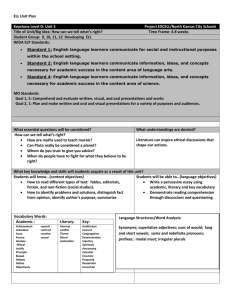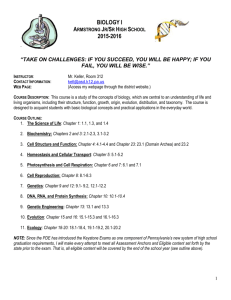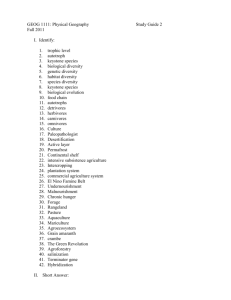slides
advertisement
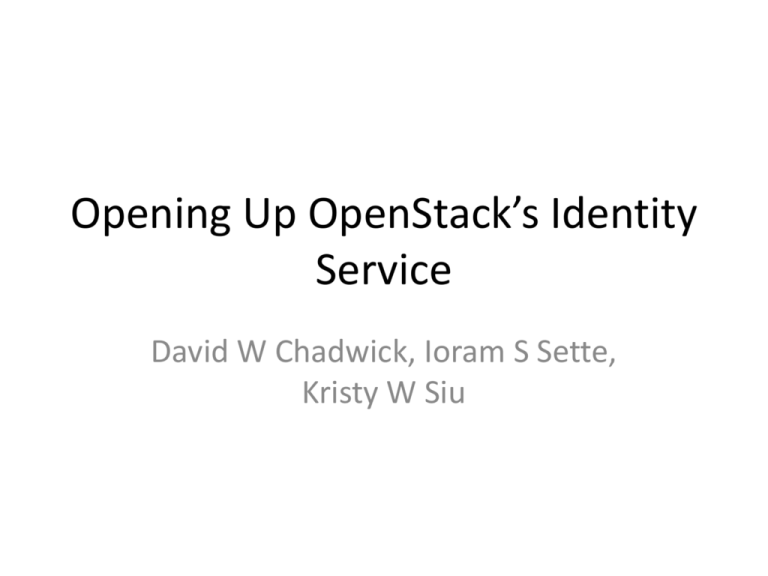
Opening Up OpenStack’s Identity Service David W Chadwick, Ioram S Sette, Kristy W Siu CONTENTS • • • • Introduction to OpenStack Federated Access in OpenStack Support for Virtual Organisations Future Work OpenStack • Most popular open source cloud software • Set of services accessed via RESTful APIs – Nova the compute service – Neutron the network service – Swift the filestore service – Cinder the block storage service – Keystone the identity service – Horizon the dashboard/GUI web access service – Plus several others….. Keystone Identity Service • Based on Kerberos design • User authenticates to Keystone • User is given an access token, either unscoped or scoped to a particular project/service • User passes scoped token to service • Service either validates token itself (PKI token) or passes it to Keystone for validation (UUID token) or uses a symmetric key shared with Keystone (Fernet token) • User is then granted or denied the requested access Keystone Construction • Modular construction of interconnected services • Identity service – Holds data about users, their groups, their pws in SQL database – Can have an LDAP backend to hold this info • Resource service – Holds data about projects and domains • Assignment service – Holds data about roles, and users assigned to roles in projects • Token service – Manages and validates scoped and unscoped tokens of all types – Note that all tokens are currently bearer tokens • Service Catalog – Holds information about OpenStack services and their endpoints • Policy Service – Holds authz policy for accessing Keystone APIs (CRUD on users, roles, projects, domains etc.) Keystone Authentication • Originally supported 3 authn mechanisms: • Password (un/pw stored internally or in LDAP backend) • External, meaning that Keystone was front-ended by an Apache web server that performs the authn and passes REMOTE_USER to Keystone • Token, meaning that the user already has a Keystone token • No support for federated authentication but does allow other authn methods to be plugged in Protocol Independent Federated Access • In 2012 University of Kent added protocol independent federated access to Keystone by adding a Federated Authentication plugin module to Keystone • Comprised two components • Protocol independent trust management – Trusted IdPs, Trusted Attributes, Trusted Attribute Mappings • Protocol handling component that always returned users identity attributes in the same format, essentially name/ID, set of identity attributes and IdP that issued them – One plugin per federation protocol – Meant that any number of IdPs and federation protocols could be simultaneously supported IdPs Trusted IdP filter 3 Trust Filters Trusted Attribute filter Attribute Mapping Rules filter Keystone Attributes Attributes from Trusted IdPs Trusted Attributes from Trusted IdPs Federated Keystone Today • Took our design to Keystone group • They decided to support federation via Apache front end (only), to minimise their subsequent support effort • Apache federation plugin returns set of environmental variables to Keystone containing – REMOTE_USER – authn name of user – Identity attributes from federation protocol Federated Keystone Core Release • Configured with list of Trusted IdPs • Configured with multiple sets of Mapping Rules • Configured with a Protocol which binds one set of mapping rules to one IdP – In (mistaken?) belief that an IdP can support multiple protocols (even though Apache cannot) – And it is best to have mapping rules per IdP protocol • Not a good design for large academic federations where hundreds of IdPs might have the same mapping rules based on eduperson schema – Currently fixing this so that a protocol can be bound to one set of mapping rules and a set of IdPs Mapping Rules • A mapping consists of a set of mapping rules. Each rule: – Specifies the set of identity attributes that a federated user must possess • Attribute values are listed as “any_one_of” or “not_one_of” – A Keystone group (or user) that the user maps to • The admin separately specifies the roles and projects that group members are assigned to (via the existing assignment API) Issue 1 – Accessing List of Trusted IdPs • Unauthenticated users cannot access the list of trusted IdPs, so how do you return the list for them to pick from? – Underlying problem is with policy engine since you cannot configure public access to an API (only access to all authenticated users). Public access has to be hardcoded by skipping the policy checking step altogether – Solution proposed is to create another API call (get public IdPs) which has no policy checking, because changing policy engine was too complex and responsibility of another OpenStack group Issue 2 – No Trusted Attributes Policy • Trusted attributes policy is implicit in binding a mapping rule to an IdP – In Kent’s design you listed the set of attributes that each IdP was trusted to issue, then had one common set of mapping rules • However, mapping rules support regular expressions, so it is possible for poorly constructed rules to accept untrusted attributes • Furthermore, once multiple IdPs can use same mapping rules, then nothing to stop any IdP issuing attributes from the set that they are not supposed to Issue 3 – Requires Apache • Relies on Apache to handle federated protocol • So need the Apache plugin mod_fed_protocol to be available • Apache cannot support multiple federation protocol plug-ins simultaneously e.g. mod_shib, mod_mellon and mod_moonshot • So need a proxy IdP that talks one protocol to Apache (say SAML) and multiple protocols to other IdPs Issue 4 – User Access Rights • Not all users from one IdP should have the same access rights at OpenStack and different users from different IdPs may need the same access rights at OpenStack • Solution. Create a Virtual Organisation (VO) where different users from different IdPs are mapped into the same VO role (≅ Keystone group) and will then have the same roles in OpenStack projects • Problem. IdPs will not assert the attributes that SPs need to differentiate between users • Its very difficult (almost impossible?) for SPs to get the specific attributes they need for authz to be added to corporate LDAP servers 7 April 2014 Internet 2 Global Summit, Denver, CO 15 Integrating VO Management into Keystone • Use the federation attribute mapping service to form VO roles/groups Attribute Mapping User 1 IDP 1Fe Keystone Groups Id Atts Keystone IDP 2 User 2 A Federation Some VO 7 April 2014 Internet 2 Global Summit, Denver, CO OpenStack Service 16 Mapping Issue • VO Administrator typically does not know what unique ID the IdPs will assert for each VO member – E.g. SAML persistent ID • Neither does the user – unless it is a globally unique name like ABFAB Network Access Identifier - username@realm • Solution – VO Role Registration by Invitation 7 April 2014 Internet 2 Global Summit, Denver, CO 17 Invite Users to Register to a VO Role • VO Administrator creates a Keystone group (≅ VO role) and gives it permissions (domains, projects, roles) • Sends group name and pw/PIN to invited VO members out of band • VO member authenticates to Keystone via his/her IdP • Asks to join group and provides pw/PIN • Keystone (semi-)automatically creates a mapping rule from user’s unique IdP asserted ID to group name 7 April 2014 Internet 2 Global Summit, Denver, CO 18 Security Safeguards • Unauthenticated users cannot access the service • Authenticated users who specify a wrong pw/PIN 3 times are put in a black list and cannot authenticate to Keystone again until removed from it – stops pw cracking attacks • Joining a role can be made “administrator confirmed” where requests go into a pending queue to be OKed by the VO administrator Administering VO Roles Creating a VO Role Viewing My VO Roles Joining a VO Role Admin Approves VO Join Request User Sees New VO Role User can resign from VO role anytime he/she wants Future Work • Get VO concept accepted into Keystone core • Add support to share VO roles (≅ Keystone groups) between services – API call to get VO roles – Add code in Keystone federated authn to fetch VO roles from a remote Keystone (attribute aggregation) Any Questions
